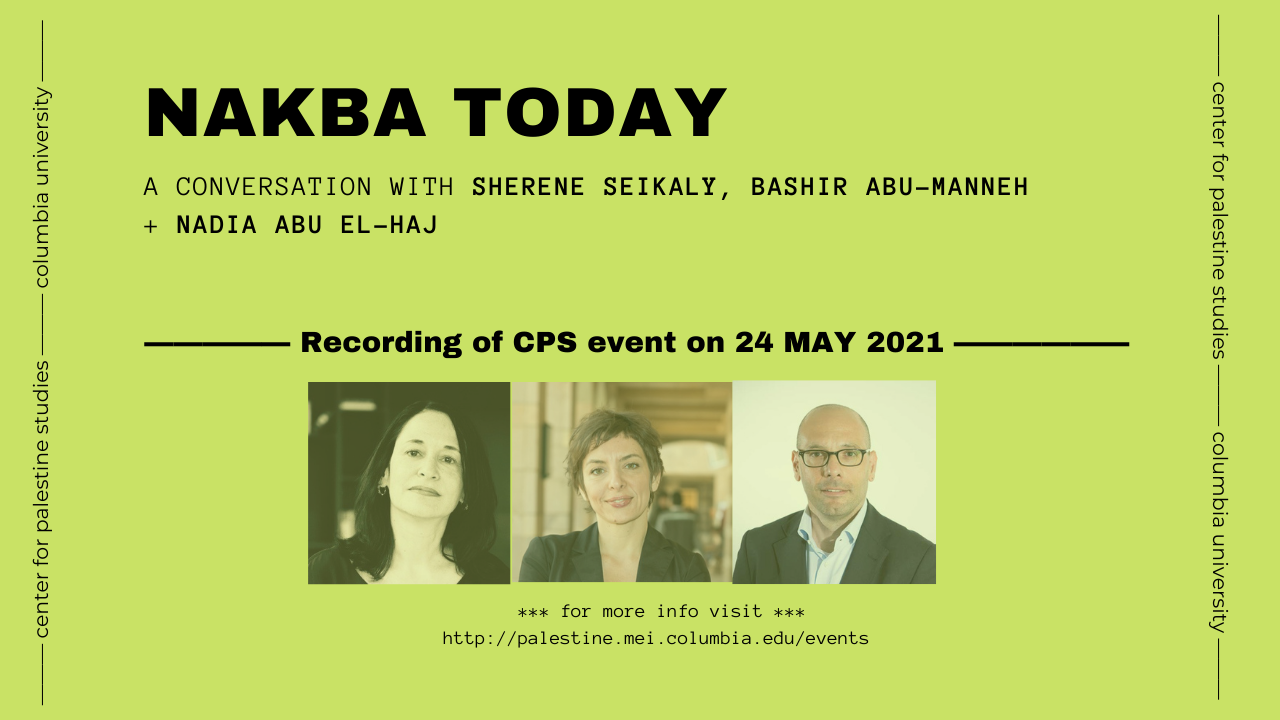3 JUNE 2021
6pm LONDON
Join The Mosaic Rooms for the third part of the symposium When I see the future… in the public programme of Heba Y. Amin‘s exhibition When I see the future, I close my eyes.
View the event details on The Mosaic Room’s website.
Jerusalem Quarterly guest editors Yazid Anani, Salim Tamari and select contributors Ariel Caine, Zeynep Çelik and Michael Talbot share this round table discussion dedicated to aerial surveillance of Palestine. The event marks Jerusalem Quarterly‘s special issue Palestine from Above: Surveillance Cartography and Control (Spring and Summer, 2020).
Jerusalem Quarterly is the leading journal on the past, present, and future of Jerusalem. It documents the current status of the city and its predicament. It is also dedicated to publishing new lines of inquiry by emerging scholars on Palestinian society and culture.
About the speakers
Yazid Anani born 1975, Ramallah, is the Director of the Public Programme at the A. M. Qattan Foundation, Ramallah. He curated and co-curated several projects including: Outside the Archive, Subcontracted nations, Zalet Lisan, The Facility, Weed Control and the 2nd- 6th editions of Cities Exhibition. More about Yazid Anani.
Ariel Caine is an artist and researcher currently living in London. He holds a PhD from the Centre for Research Architecture, Goldsmiths University and is a researcher at Forensic Architecture. More about Ariel Caine
Michael Talbot is Senior Lecturer in the History of the Ottoman Empire and Modern Middle East at the University of Greenwich. His research to date has examined Ottoman-British relations (17th-19th centuries), Ottoman maritime law and practice (18th century), and the history of late Ottoman Palestine. More about Michael Talbot.
Zeynep Çelik is distinguished professor emerita at the New Jersey Institute of Technology and adjunct professor of History at Columbia University. Her publications include Urban Forms and Colonial Confrontations (1997), Camera Ottomana (2014, co-editor), and Europe Knows Nothing about the Orient (forthcoming). More about Zeynep Çelik.
Salim Tamari is IPS senior fellow and the former director of the IPS-affiliated Institute of Jerusalem Studies. He is editor of Jerusalem Quarterly and Hawliyyat al Quds. He is professor of sociology at Birzeit University and an adjunct professor at the Center for Contemporary Arab Studies at Georgetown University. More about Salim Tamari.
Image: (Detail) Graf Zeppelin over Jerusalem, 1931. G. Eric and Edith Matson Photograph Collection, Library of Congress.


